Day 2
Schedule
Session III. Diverse approaches to harmony with nature in the context of peace making in borderlands
10:00 KST / 01:00 GMT
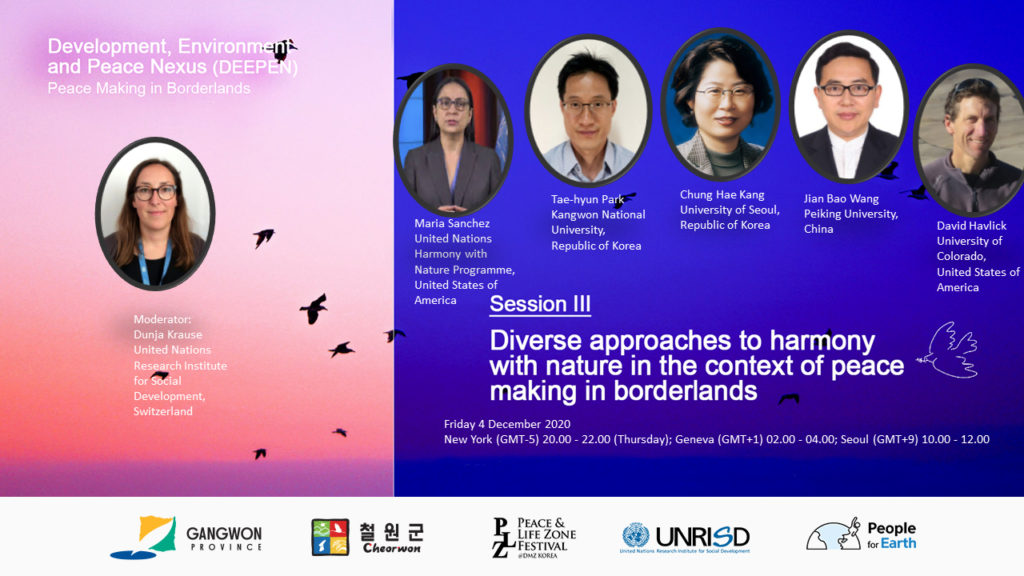
This session addresses the opportunities and challenges of diverse approaches to the environment or nature for peace-making in the contexts of borderlands.
Key questions are:
- How can different approaches to environment and nature contribute to making peace in the context of borderlands?
- What do new and emerging concepts and approaches to nature or environment such as ecozoic era, biocracy, Buen Vivre, earth jurisprudence, constitutional or legal rights to nature, offer for peace-making in the context of borderlands?
To answer these questions, the session mainly discusses the following issues.
- Opportunities and challenges of diverse approaches to environment or nature, in particular, those newly emerging concepts and approaches in the context of peace-making in borderlands
- Practices to which new concepts and approaches have been applied and their challenges and opportunities in borderland contexts
- Implications of the diverse approaches to environment or nature for peace-making in the context of borderlands
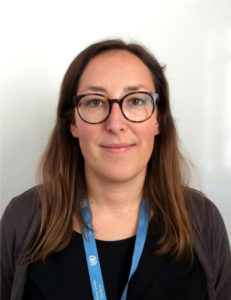
Dunja Krause
Research Officer
Dunja Krause is a Research Officer and leads UNRISD’s work on climate justice with a focus on just transition to low-carbon development and transformative adaptation to climate change in coastal cities. She coordinates the Just Transition Research Collaborative and recently co-edited the volume “Just Transitions: Social Justice in the Shift Towards a Low-Carbon World”. A geographer by training, she has previously worked at the United Nations University Institute for Environment and Human Security (2009-2014), focusing on vulnerability assessments to natural hazards, the development of a global risk index, and the evaluation of climate change adaptation options in the Vietnamese Mekong Delta. Dunja previously held a shorter post (2008-2009) with the United Nations Environment Programme in Vienna, working on the interlinkages between environment and security and transboundary environmental cooperation as a means of conflict prevention.
Major Publications and Research
- Edouard Morena, Dunja Krause and Dimitris Stevis (eds.). 2020. Just Transitions: Social Justice in the Shift Towards a Low-Carbon World. London: Pluto Press.
- Just Transition Research Collaborative (JTRC). 2018. Mapping Just Transition(s) to a Low-Carbon World. Geneva: Rosa-Luxemburg-Stiftung, University of London Institute in Paris and UNRISD.
- Dunja Krause. 2018. “Transformative Approaches to Address Climate Change and Achieve Climate Justice.” In Routledge Handbook of Climate Justice, edited by Tahseen Jafry, 509-520. Abingdon: Routledge.
“The UN Harmony with Nature Programme: A Non-Anthropocentric Worldview”
Maria Mercedes Sanchez
Coordinator of the UN Harmony with Nature Programme
Maria Mercedes Sanchez has over 20 years of experience working in the field of sustainable development and intergovernmental processes including the engagement of major groups and other stakeholders through every state of the implementation process of a variety of UN mandates. She has worked extensively in the areas of research, report writing, project management and communications and has participated in four major United Nations Conferences on Sustainable Development: UNCED (1992), Rio+5 (1997), Rio+10 (2002), Rio+20 (2012) as well as in the preparations leading to the adoption of the 2030 Agenda adopted by the General Assembly in 2015.
Since the inception of the UN Harmony with Nature Programme in 2009, she has been the coordinator of and leads the Programme in support of Earth Jurisprudence principles in the implementation of the 2030 Agenda across different stakeholders and with particular reference to the implementation of Sustainable Development Goal 12, target 12.8 “to ensure that people everywhere have the relevant information and awareness for sustainable development and lifestyles in Harmony with Nature”. She is the lead drafter of the reports of the Secretary-General on Harmony with Nature.
The Programme strengthens interdisciplinary collaborations towards a non-anthropocentric or Earth-centered worldview and system of governance, known as Earth Jurisprudence, in which humans are only part of a wider community of beings and the wellbeing of each member of that community is dependent on the wellbeing of the Earth as a whole. At the core of this worldview is the recognition of the intrinsic value of Nature and of relationships between humankind and our planet that are symbiotic, interconnected and subject to the natural laws of the Universe.
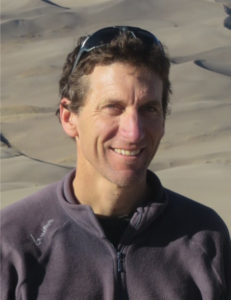
“The Contested Nature of Borderlands: Ecology, Culture, and Policy”
David Havlick
Professor of Geography and Environmental Studies, University of Colorado – Colorado Springs
David Havlick is Professor of Geography and Environmental Studies at the University of Colorado-Colorado Springs. His research on militarized landscapes, restoration geographies, conservation, and public lands has been supported by the National Science Foundation, American Geographic Society, and US Forest Service. He has published in journals including Science, The Geographical Review, Environmental Ethics, Progress in Physical Geography, Ecological Restoration, Forestry, and Land Change Science. His book, Bombs Away: Militarization, Conservation, and Ecological Restoration (University of Chicago), won the 2019 JB Jackson Prize from the American Association of Geographers. He is also the author of No Place Distant: Roads and Motorized Recreation on America’s Public Lands (Island Press); and co-edited (with Marion Hourdequin) Restoring Layered Landscapes: History, Ecology, and Culture (Oxford).
Major Publications and Research
- Havlick, David G. 2018. Bombs Away: Militarization, Conservation and Ecological Restoration. University of Chicago Press, 204 pp.
- Marion Hourdequin and Havlick, David (eds.) 2016. Restoring Layered Landscapes: History, Ecology, and Culture. Oxford University Press, 272 pp.
- Havlick, David G. 2014. “Opportunistic Conservation at Former Military Sites in the United States,” Progress in Physical Geography 38: 271-285.
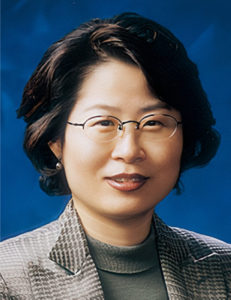
“Borderlands as a nexus of ecological development and earth law in the context of stakeholders”
Chung Hae Kang
Professor, School of Law, University of Seoul
2005 – Present : Professor, Law School of University of Seoul
2007 – 2010 : Non-Standing Commissioner, Anti-Corruption &Civil Rights Commission of Korea;
2006 – 2008 : Non-Standing Commissioner, Truth and Reconciliation Commission of Republic of Korea;
2005 – 2013 : Non-Standing Commissioner, National Environmental Dispute Resolution Commission;
1992-2005 : Attorney at Law in Lee & Ko, Seoul
Major Publications and Articles
Professor Kang has published 4 Books in the area of Commercial Law, International Business Transaction Law and Introduction to the Law with more than 15 articles on Social Enterprise, Commercial Law, Environmental Law and ADR.
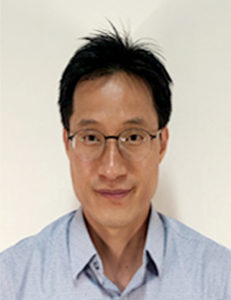
“DMZ and Its Legal Entity: A new understanding of the relationship between human & nature in the perspective of Earth Jurisprudence”
Taehyun Park
Professor, school of Law, Kangwon National University
Lawyer specialized in environmental litigation
Major Publications and Research
- The Comparative Study of Climate Change Litigations across World
- The Exploration into Institutionalization of the Commons
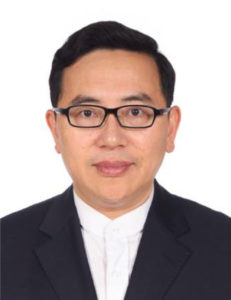
“Responsive and Responsible Mutuality Between the Human Self and Her Ecosystem: A Perspective of Spiritual Humanism”
心灵结构与生态系统:一个精神人文主义的视角
Jian Bao Wang
Research Fellow & Director
Center for the Humanities and Business Ethics & Research Center on the Confucian Economic Sphere & Research Center on New Business Civilization
CKGSB(Cheung Kong Graduate School of Business) and PKU(Peking University)
Academic Assistant Dean of Institute for Advanced Humanistic Studies(IAHS)
Director of DCE (Discourse on Confucian Entrepreneurs) Program at World Ethics Institute Beijing (WEIB)
Ph.D. in Philosophy, Peking University, 2014- 2017,
Dissertation: “Wealth and the Way: A Mencian Perspective.” Supervised by TU Weiming
Job Experiences: Corporate Group Management: Strategy, Corporate Culture and Risk Management for SOEs, WOFEs, and JVs;
- Public Company Management: Corporate Governance, IR, Raising Money and M&A;
- Supply Chain Management (especially Strategic Sourcing);
- R&D Management (successfully built a National R&D Center);
- Quality Management with ISO 90001 auditor certificate since 1994;
Book Chapters
has been published in the book in Oct. 2017, Renmin Press, Beijing
Journal Articles
published on CSSCI Journal Vol. 3 2017, pp. 104-112
Public Media Articles and Interviews
on 13.11.2017 (Financial Times Chinese Edition) http://www.ftchinese.com/story/001075027?full=y
Session IV. Diverse approaches to harmony with nature and their relationship with peace and development
15:00 KST / 06:00 GMT
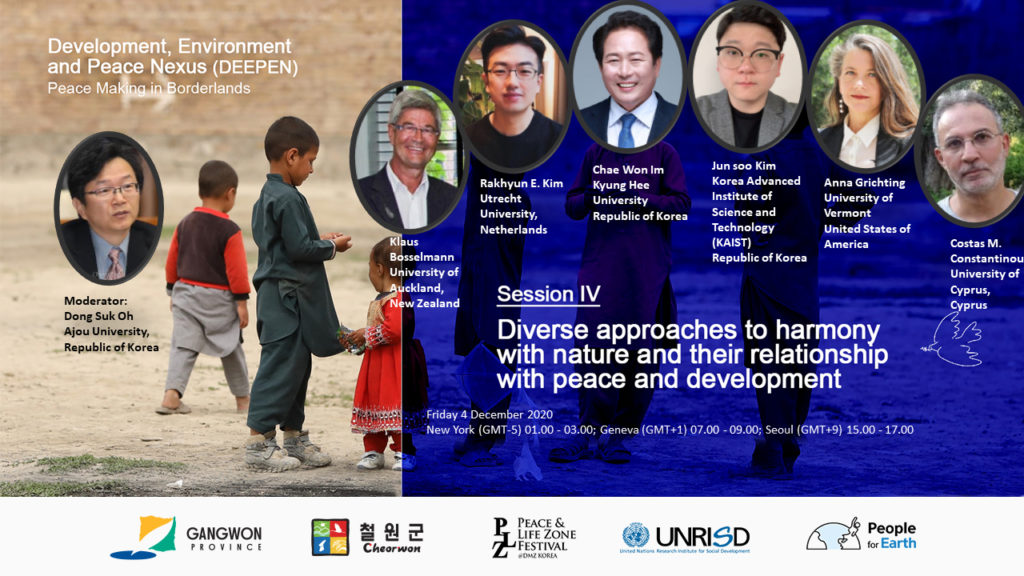
This session addresses the opportunities and challenges of diverse approaches to the environment or nature.
Key questions are:
- How inclusive are the concepts, theories and practices that integrate environment and peace?
- What do new and emerging concepts and approaches to nature or environment such as ecozoic era, biocracy, Buen Vivre, earth jurisprudence and constitutional or legal rights to nature offer for peace-making?
- What would be the desirable governance and culture for harmony with nature?
To answer these questions, the session mainly discusses the following issues.
- Concepts and practices of sustainable and inclusive approaches to environment and peace, in particular, those newly emerging concepts and practices such as biocracy and earth jurisprudence?
- Limitations and potentials of the newly emerging concepts and practices for environment and peace
Dong Suk Oh
Professor, Ajou University, School of Law
2020 – chairman of Korean Police Law Association
2018 – member of the National Police Human Rights Commission
2017-2018 vice-chairman of Korean Constitutional Law Association
Major Publications and Research
- Earth Jurisprudence and Constitutional Law, Earth Jurisprudence, Seoul National University Press. 2020. 7. 164-203.
- A Constitutional Review of Acquisition of Communication Data. Journal of Police Law Vol. 18 No. 1. 2020. 2. 28.
- Principles of University Autonomy and System of Chancellor Appointment. Ajou Law Review 10(4). 2017. 154-174.
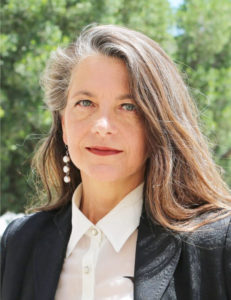
“Co-Creating Peace with Nature. New visions for borders and buffer zones in a future Ecological Civilization”
Anna Grichting
Senior Research Fellow, Institute for Environmental Diplomacy and Security, University of Vermont. Bordermeetings.
Dr. Anna Grichting is an architect, urbanist and musican and graduated with a Doctor of Design in Urbanism from Harvard University. She has practiced and held teaching and research positions as at the Universities of Geneva, Harvard, MIT, Qatar and Vermont and she has served as a nominator and technical reviewer for the Aga Khan Award for Architecture. Her work focuses on co-creative, interdisciplinary, holistic and regenerative approaches to urban and landscape design, in particular on the Food-Water-Energy Nexus, Soil and Biodiversity, Urban Forestry, and Blue Urbanism. She has spent many years studying Border Landscapes worldwide, in particular the Cyprus Buffer Zone and the Korean DMZ. Anna has received several research grants, including a Belmont Forum Grant for a Global Initiative on the Food Water Energy nexus. She has participated in, and curated, interdisciplinary, cultural and scientific events and workshops, and she is a regular speaker in conferences and congresses worldwide. She has published papers, journal articles, books, and book chapters. Anna has performed with her musical ensembles in Switzerland, Pakistan, Morocco, Qatar, and the USA and has also recorded musical CDs with Swiss and international musicians, namely Sufi Moon, Bordermeetings, and Desert Bridges with her late husband Cheo Jeffery Allen Solder. She currently plays with her jazz trio and Anna Jazz and Roses. www.annagrichting.com
Major Publications and Research
- BLUE BRIDGES, BLUE PEACE: TRANSBOUNDRY PLANNING FOR PEACE AND BIO DIVERSITY CONSERVATION IN THE GULF
Anna Grichting and Maryam Alfaraidy In Asian Journal of Middle Eastern and Islamic Studies, 2576-5949 (Print) 2576-5957 (Online). Published by Routledge, Taylor & Francis. October 2019. - THE SOCIAL ECOLOGY OF BORDER LANDSCAPES.
Grichting A. & Zebich-Knos, M. Edited Volume. Anthem Press, London, United Kingdom, 2017. Reprinted in paperback in 2019. - FROM A DEEP WOUND TO A BEAUTIFUL SCAR. THE CYPRUSGREENLINESCAPES LABORATORY.
In Stitching the Buffer Zone: Landscapes, Sounds and TransExperiences along the Cyprus Green Line. Bookworm Publications, Cyprus, 2012.
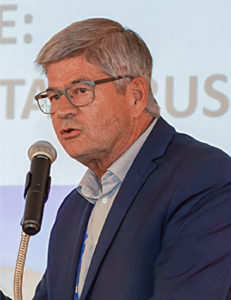
“Cross-border Trusteeship of Nature”
Klaus Bosselmann
Professor, University of Auckland, New Zealand
Dr Klaus Bosselmann is Professor of Environmental Law and Founding Director of the New Zealand Centre for Environmental Law at the University of Auckland. During his long-standing academic career in Germany and New Zealand he has served as a consultant to the United Nations, the OECD, the European Union and various governments. He is Chair of the IUCN World Commission on Environmental Law Ethics Specialist Group, Chair of the Ecological Law and Governance Association, Co-Chair of the Global Ecological Integrity Group and Chair of the Earth Trusteeship Initiative. He was the main drafter of Hague Principles for Responsibilities for Human Rights and Earth Trusteeship adopted by 100 civil society organisations in the Peace Palace, The Hague, in December 2018 and is a member of legal expert group for a Global Pact for the Environment. Professor Bosselmann has authored or edited over 30 books. For his pioneering work on ecological law and Earth jurisprudence he received numerous awards including the Inaugural Senior Scholarship Prize of the IUCN Academy of Environmental Law.
Major Publications and Research
- Klaus Bosselmann (ed.), The Crisis in Global Ethics and the Future of Global Governance, Edward Elgar,2019;
- Klaus Bosselmann, The Principle of Sustainability: Transforming Law and Governance, 2nd ed., Routledge, 2017;
- Klaus Bosselmann, Earth Governance: Trusteeship for the Global Commons, Edward Elgar, 2015
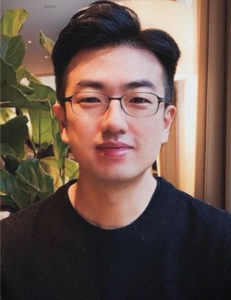
“Earth system law for peacebuilding? Putting “nature” at the center of concerns for sustainable peace”
Rakhyun E. Kim 김락현
Assistant Professor, Utrecht University, the Netherlands
Rakhyun E. Kim is Assistant Professor of Global Environmental Governance at the Copernicus Institute of Sustainable Development, Utrecht University in the Netherlands. His research interests include exploring the structural complexities of global governance with a focus on international agreements and organizations as its key building blocks. Kim is also a Senior Research Fellow with the Earth System Governance Project, where he co-leads the Task Force on Earth System Law. Kim has published widely in leading journals and is currently on the Editorial Boards of several journals including Earth System Governance and Review of European, Comparative & International Environmental Law. He is the winner of the 2013 Oran R. Young Prize, and he currently chairs the Oran R. Young Prize Committee. In 2020, Kim received a 1.5 million euro research grant from the European Research Council for a five-year research project on “environmental problem shifting” between international environmental treaty regimes.
Major Publications and Research
- Kotzé, L.J. and Kim, R.E. 2019. Earth System Law: The Juridical Dimensions of Earth System Governance. Earth System Governance, vol. 1.
- Kim, R.E. 2016. Transnational Sustainability Law: Whither International Environmental Law? Environmental Policy and Law, vol. 46, no. 6, pp. 405-408.
- Kim, R.E. and Bosselmann, K. 2013. International Environmental Law in the Anthropocene: Towards a Purposive System of Multilateral Environmental Agreements. Transnational Environmental Law, vol. 2, no. 2, pp. 285-309.
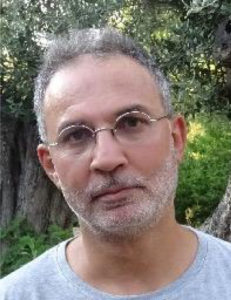
“From Biocracy to Biodiplomacy: Nature, Law, Ethics”
Costas M. Constantinou
Professor, International Relations, University of Cyprus
Costas M. Constantinou is Professor of International Relations at the University of Cyprus, with research interests in diplomacy, conflict, international political theory, and legal and normative aspects of international relations. For selected publications, see https://www.researchgate.net/profile/Costas_Constantinou5
Recent relevant publications
- Constantinou, C. M., & Opondo, S. O. (2019). On biodiplomacy: Negotiating life and plural modes of existence. Journal of International Political Theory, 1755088219877423.
- Constantinou, C. M., Hadjimichael, M., & Eftychiou, E. (2020). Ambivalent greenings, collateral conservation: Negotiating ecology in a United Nations buffer zone. Political Geography, 77, 102096.
- Constantinou, C. M., & Hadjimichael, M. (2020). Liquid Entitlement: Sea, Terra, Law, Commons. Global Society, 1-22.
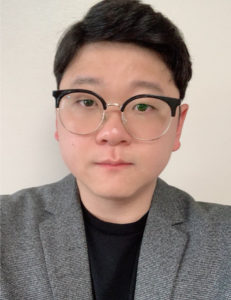
“Variegated turn(s) in the more-than-human world: Toward the new political ecology of ‘State-Nature’ relations in the DMZ”
인간 너머의 세계에 대한 전환(들): DMZ에서 ‘국가-자연’의 관계성 변화의 새로운 정치생태학을 위하여
Junsoo Kim
Researcher, Korea Advanced Institute of Science and Technology, KAIST
Junsoo is a researcher in the Center for Anthropocene Studies (CAS)at KAIST (Korea Advanced Institute of Science and Technology) and a Ph. D. candidate in the Graduate school of Science and Technology Policy. Junsoo has been working in the area of political ecology and urbanization theory. After he finished his B.A. and M.A. in the Department of Sociology at Yonsei University, he worked as a researcher in the Center for Asia Urban Societies at Seoul National University. He also a board member of KASER (Korean Association of Space and Environment Research) and director of the education committee. Junsoo has published various fields of nonhuman studies, more-than-human approaches, and the East-Asian developmental urbanization process and ‘state-nature’ relationships regarding geography and sociology. Recently, Junsoo focusing his research on the contextualizing East-Asia Anthropocene regarding Urban Political Ecology and STS with the various case studies, including invasive species in urban space, hybrid natures, landscape gardening, politics of urban infrastructures, and socio-natures’ political ecology. His interdisciplinary research covers not only the fields of environmental science but also STS and urban political ecology.
Major Publications and Research
- Kim Jun Su. 2019. “The Production of Han-river: Developmental Urbanization and More-than-Human Waterscape”. . 29(67): 94-158.
- Kim Jun Su. 2019. “Pig War: Toward the More-Than-Human Territoriality through African Swine Fever”. . 31(3): 41-60.
- Kim Jun Soo et al, 2020. “Anthropocenic Nature in the Pandemic: Social distancing and the ‘more-than-human’ biopolitics.” .
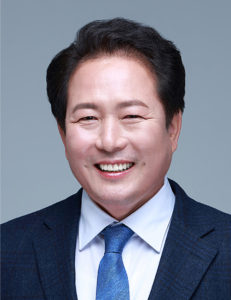
“The Emergence of Biocracy and Its International Spread as Epistemic Community “
Chae Won Lim
Chairman of Korea Public Policy Association
– Chairman of Planning and Evaluation Committee, National Research Commission
– Member of Presidential Commission for Policy Planning
– Research of National Leadership Center, Seoul National University
Major Publications and Research
- National Vision 2050(2019)
- Civic Republicanism(2017)
- Statecraft of Republicanism(2008)
- Social Investment State(2007)
- Poverty of Conservatism and Policy Discourse(2005)
Session V. Sustainable Development and Transformation in Borderlands
17:30 KST / 08:30 GMT
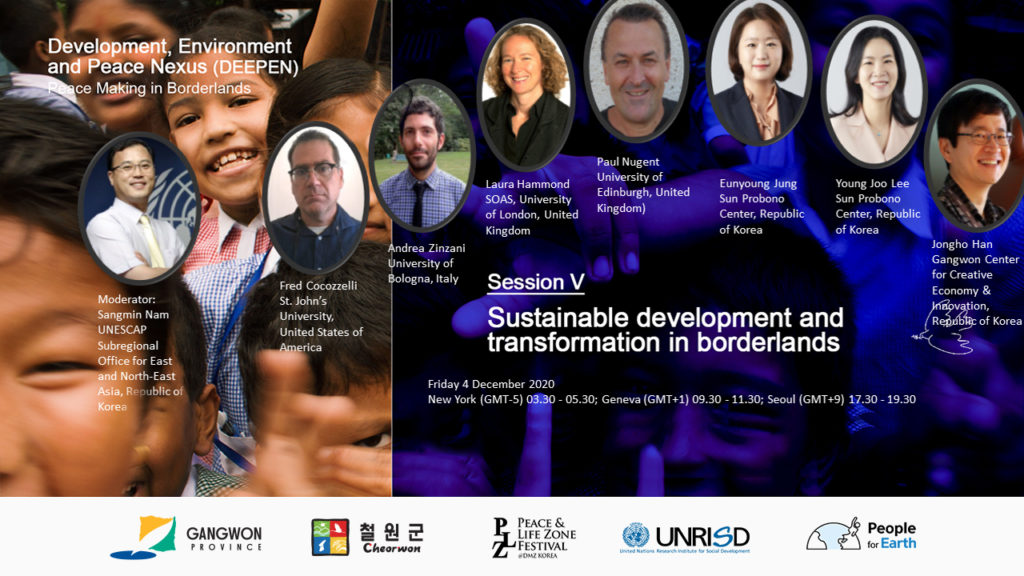
This session discusses policies and institutions for sustainable development as both transformations of unjust structures and transition towards peace.
Key questions are:
- What are the major developmental concerns in the context of borderlands?
- What policies and institutions can overcome the structure to generate injustice and inequalities in the context of borderlands?
- How to foster participatory decision-making approaches involving all stakeholders in the transparent and democratic political processes?
To answer these questions, the session mainly discusses the following issues.
- Key economic and social development issues in borderlands
- Mainstream economic and social policies in borderlands and their limitations
- Innovative approaches to fostering local democracy in borderlands

Sangmin Nam
Deputy Head, UNESCAP Subregional Office for East and North-East Asia
Before joining the UN, he taught at Hanyang University in Seoul, served as an expert member of the Presidential Commission on Sustainable Development, and worked with Green Korea United, a leading environmental NGO in the ROK, as a founding member and programme and policy manager. Dr. Nam obtained a PhD degree in the field of international environmental governance from University of Melbourne, Australia.
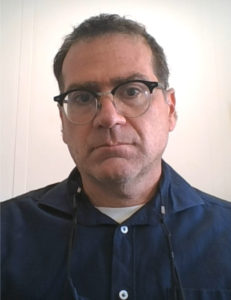
“Social Citizenship Across Borders: A Preliminary Look at the Institutional Opportunities and Challenges”
Fred Cocozzelli
Associate Professor & Department Chair, Government & Politics, St. John’s University
He is currently the Chairperson of the Department of Government & Politics at St. John’s University in New York, New York. His overarching research theme has been on questions of citizenship, with primary emphases on issue of social citizenship in post-conflict contexts, with a major focus on the Balkans. In particular, he has worked on research addressing the reconstruction of social welfare institutions, as well as the political integration of minorities in Kosovo. He has taught at St. John’s University since 2005. He completed my PhD at the New School for Social Research, and his Masters of International Affairs at Columbia University. Prior to becoming an academic, he worked as a humanitarian field officer in post-conflict Kosovo.
Major Publications and Research
- Ethnic minority groups and boundaries in Kosovo, in Ethnic Minorities and Politics in Post-socialist Southeastern Europe, ed. Marko Valenta and Sabrina P. Ramet. 2016 Cambridge University Press
- Between Democratisation and Democratic Consolidation: The long path to democracy in Kosovo, Perspectives on European Politics and Society. 2013. Vol 14 No 1, March
- War and Social Welfare: Reconstruction after Conflict. 2009. New York: Palgrave Macmillan.
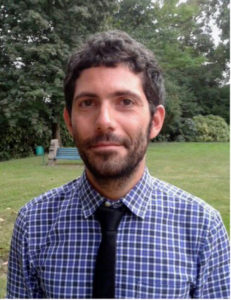
“Environmental policies, politics and informality in the borderlands: the political ecology perspective”
Andrea Zinzani
Research Fellow, Geography section, Department of History and Cultures, University of Bologna
Honorary Research Fellow, Global Development Institute, University of Manchester
His research focuses on Political Ecology, Environmental Politics and Conflicts in relation to territorial and urban transformations with the analysis of empirical case-studies in Central Asia (Uzbekistan, Kazakhstan, Kyrgyzstan), South-east Asia (Vietnam) and more recently in Italy.
Major Publications and Research
- Zinzani, A., Curzi, E. 2020. “Urban Regeneration, Forests and Socio-Environmental Conflicts: The Case of Prati di Caprara in Bologna (Italy)”. ACME: An International Journal for Critical Geographies 19(2)
- Zinzani, A. 2018. “International Development Policies and Coastalscapes Metabolism: The case of the Mekong Delta, Vietnam”. Social Sciences – Geography and Sustainability Studies, 7 (2), 1-19.
- Zinzani, A., Menga, F. 2017. “The Circle of Hydro-Hegemony between Riparian States, Development Policies and Borderlands: Evidence from the Talas Waterscape (Kyrgyzstan-Kazakhstan)”. Geoforum, 85, 112-121
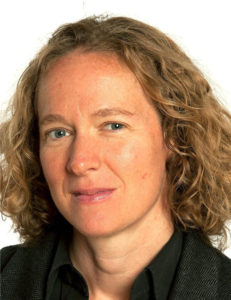
“Livelihoods and Mobility in the Borderlands of the Horn of Africa”
Laura C Hammond
Professor of Development Studies, SOAS University of London
Laura Hammond is Professor of Development Studies at SOAS University of London. She is co-director of the Work Package on Poverty and Inequalities for the South-South Migration Hub. She has been conducting research on conflict, food security, migration and diasporas in and from the Horn of Africa since the early 1990s. She lived in Ethiopia from 1993-2000, conducting research and working for the UN Emergencies Unit for Ethiopia (the precursor to UNOCHA) She is currently Challenge Leader in Security, Protracted Conflict, Refugees and Forced Displacement for the Global Challenges Research Fund, head of the London International Development Centre-Migration Leadership Team, and Team Leader of the EU Trust Fund’s Research and Evidence Facility on migration and conflict in the Horn of Africa. Laura Hammond has done consultancy for a wide range of development and humanitarian organizations, including UNDP, USAID, Oxfam, Medécins Sans Frontières, the International Committee of the Red Cross, and the World Food Programme. She has taught at Clark University, the University of Reading, and was a Visiting Fellow at the University of Sussex. She is the author of ‘This Place Will Become Home: Refugee Repatriation to Ethiopia’ (Cornell University Press: 2004), editor (with Christopher Cramer and Johan Pottier of Researching Violence in Africa)
Major Publications and Research
- This Place Will Become Home: Refugee Repatriation to Ethiopia, Ithaca: Cornell University Press (2004).
- ‘Livelihoods and Mobility in the Border Regions of the Horn of Africa,’ chapter in World Bank, edited volume: From Isolation to Integration: The Borderlands of the Horn of Africa, Washington: World Bank Group, 27-64. (2020)
- Livelihoods and Mobility in the Border Regions of Ethiopia,’ in C. Cramer, A. Oqubay, F. Cheru. The Oxford Handbook of the Ethiopian Economy, Oxford: Oxford University Press (2019).
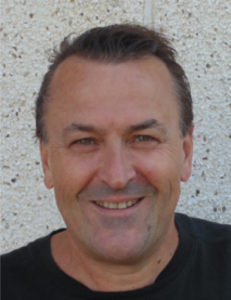
“The Missing Ingredient in African Border Management: Supporting Cross-Border Initiatives from Below”
Paul Nugent
Professor, Comparative African History, University of Edinburgh
Prof. Nugent is a graduate of the University of Cape Town with a PhD from SOAS, London. He currently works at the University of Edinburgh. Paul is both a historian and a political economist specializing in African borders, borderlands and transport corridors. He has mostly worked in West Africa on the Ghana/ Togo Gambia/Senegal borders. But more recently he has been the holder of a European Research Council (ERC) Advanced Grant dealing with transport corridors, borders towns and port cities. This has involved conducting research on the Northern Corridor running from Mombasa in Kenya through Uganda to Rwanda. He has also been working on the Abidjan-Lagos Corridor with a particular focus on the relationship between the Togolese capital, Lomé, and the neighbouring town of Aflao in Ghana . Paul has worked on small-scale trade, Customs reform, border urbanism, cross-border festivals and the politics of borders, including secessionism. He has also written more broadly on post-colonial Africa. He has also been researching the history of the South African wine industry.
Major Publications and Research
- Smugglers, Secessionists and Loyal Citizens on the Ghana-Togo Frontier: The Life of the Borderlands (Ohio University Press & James Currey, 2002)
- Africa Since Independence: A Comparative History (Palgrave Macmillan, 2nd edition 2012)
- Boundaries, Communities and State-Making in West Africa: The Centrality of the Margins (Cambridge University Press, 2019)

“Economic and social development structure and related issues in DMZ, Korea”
Eun Young Jung
Attorney at law, One Law Partners LLC
2012~ present:
– Attorney at law, One Law Partners LLC
– Member, The Sun
2019
– Member of the Special Subcommittee on the Studies of Laws and Regulations of South and North Koreas under Unification Legal Affairs Division, the Ministry of Justice
2019 ~ present:
Head of Legal Support Team for the Business with North Korea of One Law Partners, LLC
Major Publications and Research
- Research on the validity of Go-sung province as a UN city, 2019
- Research on the establishment and management of the international free tourism area, 2019
- Research on the validity of the establishment of special tourism district in East Sea area, 2018

“Economic and social development structure and possible future in DMZ, Korea”
Young Ju Lee
Attorney at law, One Law Partners LLC
2012~ present:
– Attorney at law, One Law Partners LLC
– Member, The Sun
2019 ~ present:
– Member of Legal Support Team for the Business with North Korea of One Law Partners, LLC
– Presenter, Case Study on Global Climate Change Litigations at the Joint Academic Conference 2019
– Panelist, PLZ Forum for Ecozoic Era, 2019
– Research on the validity of Go-sung province as a UN city, 2019
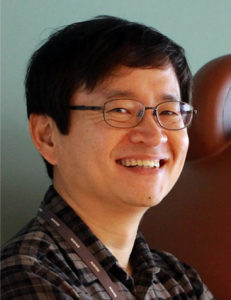
“Plans to revitalize local venture start-ups for sustainable development in the border area of Gangwon Province”
강원도 접경지역의 지속가능한 발전을 위한 로컬 벤처 창업 활성화 방안
Jong Ho Han / 한 종 호
Director, Gangwon Center for Creative Economy and Innovation
센터장, 강원창조경제혁신센터
2015~ : Director, Gangwon Center for Creative Economy and Innovation
2006~2014 : Director of Naver Partner Center, Head of Policy Office
1994~2006 : Reporter, Munhwa Ilbo
1990-1994 : Reporter, Sisa Journal
Session VI. Interventions by the UN
21:00 KST / 12:00 GMT
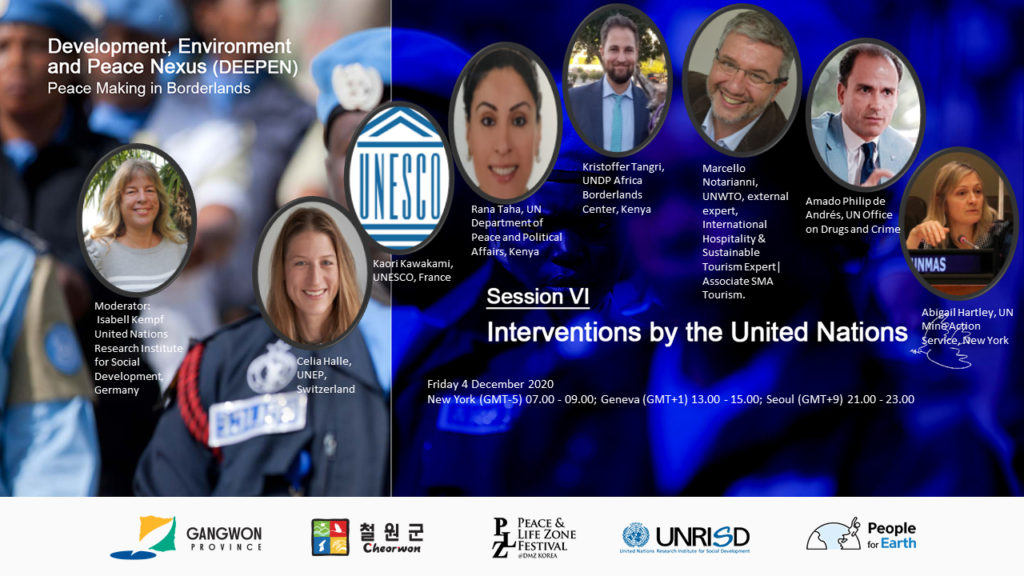
This session will introduce some UN projects on peace, development and the environment in borderlands and share policy-relevant lessons.
Key questions are:
- Which major interventions have UN agencies undertaken to address issues related to peace making in borderlands?
- What are the opportunities and challenges of these interventions by the UN system?
- What lessons can be drawn to maximize the impacts of UN interventions on the SDGs related to the environment, development and peace making in borderlands?
To answer these questions, the session mainly discusses the following issues.
- Key UN agency projects related to the issues of environment, development, peace making including on environmental protection, natural resources, cultural heritage, poverty and inequality reduction, mines, tourism, micro-small business, social and solidarity economy, and livelihoods in and beyond borderlands.
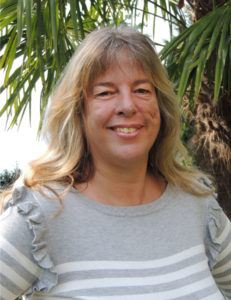
Isabell Kempf
Head of Bonn Office & Senior Research Coordinator
Isabell Kempf leads the UNRISD Bonn Programme on Integrating Knowledge and Capacity Development for the SDGs. Prior to joining UNRISD, Isabell was the co-Director of the UNDP-UNEP Poverty-Environment Initiative based at UNEP in Nairobi. She has 26 years of experience working with the UN, including UNESCO, the Economic Commission for Latin American and the Caribbean, and the Office of the High Commissioner for Human Rights. Isabell has published widely on the right to development, poverty reduction, economic, social and cultural rights, and the social dimensions of sustainable development, and she brings many years of experience in the areas of capacity building and policy-oriented research. She was appointed to the Advisory Board of the Global Governance Institute of University College London in 2014. Isabell has a B.A. and an M.A. from Oxford University in Politics, Philosophy and Economics, and a Ph.D. in International Economics and Development from the University Complutense of Madrid. She also has post-graduate degrees in Gender and Public Policy as well as Social Communication from universities in Chile.
Major Publications and Research
Selected publications can be found here.
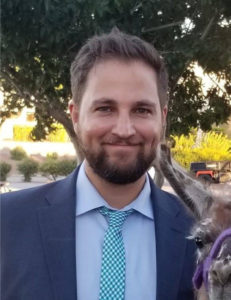
“UNDP’s Africa Borderlands Center – Elevating voices and unlocking the potential of Africa’s borderlands”
Kristoffer Tangri
Team Leader, Partnerships & Programmes, UNDP Africa Borderlands Center, Nairobi, Kenya
Kristoffer is leading the work of the UNDP Africa Borderlands Center in support of national governments, AU, RECs, UN, IFI partners and UNDP Country Offices to support the development of dedicated borderlands programming, particularly at the cross-border and regional level. Prior to joining the Borderlands Center, Kristoffer worked with UNDP’s Crisis Bureau as Regional Conflict Prevention and Peacebuilding Specialist based out of the Nairobi Resilience Hub. Previously, he has worked as Peacebuilding Policy Specialist with UNDP in New York, where he managed UNDP’s partnership with the UN Peacebuilding Architecture. Kristoffer joined UNDP in 2013 as Crisis Governance Analyst with the Bureau for Crisis Prevention and Recovery. Prior to joining UNDP, Kristoffer worked with the World Bank (Washington), GIZ (Zambia) and for the Office of the President in Timor Leste. Kristoffer holds degrees in International Affairs and International Security Policy from Columbia University (MA), in Population and Development Studies from the London School of Economics (MSc) and in Political Science and Public Administration from the University of Konstanz (BA). He is a graduate of the Mercator Fellowship on International Affairs from the German Federal Foreign Office.
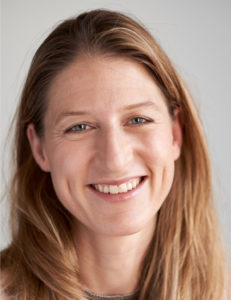
“Supporting Environmental & Climate Security in Borderland Regions”
Silja Halle
Programme Manager, UNEP-EU Climate Change and Security Programme
Silja Halle is a Programme Manager with UNEP’s Crisis Management Branch. She is responsible for managing the UNEP-EU Climate Change and Security Programme, which is working to develp on integrated responses to climate-related security risks at country level and advising policy developments at global level.
Silja joined UNEP in 2009 and has held several roles within the Branch, including as manager of the Joint UN Environment, UNDP, UN Women and DPPA Programme on Gender, Natural Resources and Peace, and as Deputy Subprogramme Coordinator for Disasters and Conflicts. She is also the co-editor of the UNEP policy series on the environmental dimensions of disasters and conflicts.
Major Publications and Research
- Halle et al. (2020). Gender, Climate and Security: Sustaining Inclusive Peace on the Frontlines of Climate Change. UNEP, UNDP, DPPA, UN Women
- Halle et al. (2013). Women and Natural Resources: Unlocking the Peacebuilding Potential. UNEP, UNDP, PBSO, UN Women.
- Halle and Jensen (eds). (2009). From Conflict to Peacebuilding: The Role of Natural Resources. UNEP.
“Culture and Conflict, Peace, and Development”
Kaori Kawakami
Chief, Emergency Preparedness and Response Unit, Culture and Emergencies Entity, Culture Sector, UNESCO
Kaori Kawakami is Chief of Emergency Preparedness and Response Unit of UNESCO Culture Sector since April 2020. She has worked at UNESCO for years based at the World Heritage Centre in Paris, and Field Offices in Jakarta and Doha, assisting member states in Asia and the Pacific as well as in the Gulf. During her assignment, she coordinated UNESCO’s damage and needs assessment for culture in emergencies after the Bohol earthquake and typhoon Haiyan in the Philippines in 2013-2014, and the emergency response actions for safeguarding of cultural heritage affected by the conflict in Yemen in 2015-2016. Previously Ms Kawakami also worked at IOM Burundi, and the World Bank Disaster Risk Management Hub, working on culture and disaster risk reduction. She is the co-author of publications such as “Understanding World Heritage in Asia and the Pacific” and “Resilient Cultural Heritage: Learning from the Japanese Experience”.
Major Publications and Research
- Understanding World Heritage in Asia and the Pacific
- Resilient Cultural Heritage: Learning from the Japanese Experience

“How can we calibrate the impact of the United Nations in building the development and security nexus while supporting Member States in their fight against transnational organized crime, drug trafficking and terrorism? The experience from a UNODC Regional Representative.”
Dr. Amado Philip de Andrés
UNODC Regional Representative
Dr. Amado Philip de Andrés is the UNODC Regional Representative for Eastern Africa based in Nairobi, Kenya. Prior to his current position, Dr. de Andrés spent six years as the UNODC Regional Representative for Central America and the Caribbean based in Panama. Dr. de Andrés has also been deputy chief of the Regional Section for Europe, Latin America and the Caribbean, Division of Operations, United Nations Office on Drugs and Crime (UNODC) in Vienna, Austria. From 2004-2008, Dr. de Andrés was Deputy Representative for West and Central Africa of UNODC in Dakar, Senegal; and previously served as an adviser at the Office of the Director of the UNMIK Department of Justice in Kosovo. Dr. de Andrés has also worked for the World Bank Group in the Philippines, the European Commission in Brussels and Samsung Corporation in Seoul, South Korea.
Major Publications and Research
Dr. de Andrés has published numerous articles in the international press and specialized magazines on economic diplomacy, public diplomacy, and drugs and crime issues in Africa, Latin America and the Caribbean. In 2004, Dr. de Andrés published a book titled The Balkans: Purgatory of Europe (Spanish Ministry of Foreign Affairs). Dr. de Andrés has a Ph.D. degree in economics from the University of Michigan/Madrid; a Masters of Arts in Public Administration from the College of Europe (Bruges, Belgium) and a double B.A. in International Economics and International Relations from Hillsdale College, Michigan, USA.
Dr. de Andrés has been a lecturer on public diplomacy and EU affairs at Doğus University in Istanbul, Turkey; Ateneo de Manila University in the Philippines (negotiation and public diplomacy); and the University Complutense of Madrid (crime and drugs in Africa).
Lately, Dr. de Andrés has participated in the Netflix special “The Business of Drugs” by Former CIA analyst Amaryllis Fox which investigates the economics of six illegal substances, show how drugs push people into risky behaviors.
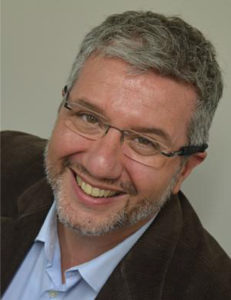
“Tourism as a driver for peace and sustainable development of borderlands: lesson learned, opportunities and challenges”
Marcello Notarianni
International Hospitality & Sustainable Tourism Expert| Associate SMA Tourism
Economist with 22 years of multidisciplinary experience in the sustainable development of the hospitality and tourism industry; I have lead, manage and implement many projects/programs (GEF, MDGs, ST-EP, Inclusive Business, EU Asia Invest and Life, Program, the International Year of Ecotourism, Trans-boundary Landscape Initiatives, Colombia+ Competiviva) on tourism planning, management, product development, marketing, investment, value chain, partnership, sustainable tourism tools and practices, capacity building and training for different client (UNWTO, UNESCO, ADB, IADB, UNDP, SNV, Swisscontact, DFiD, GIZ, ICIMOD, Protected Areas, etc.) in over 35 countries worldwide. I have experience on borderland initiative using tourism as driver for sustainable development, livelihoods and peace between countries. I gained extensive experience in capacity building and training activities at operational and academic level being trainer at ITC/ILO annual course on Sustainable Tourism and Local Development in Rural Areas and the Ostelea School of Tourism Hospitality Master on tourism management (Spain). I have contributed to carrying out researches, guidelines, reports, training materials for renowned international organizations (UNWTO, IUCN, SNV, ITC/ILO, ADB and ICIMOD). At present I am involving in several projects/initiatives providing strategic advices and capacity building on post-COVID 19 tourism recovery strategies and response. Master Tourism Economics, Bs Economics and Banking and specialization on sustainable tourism project management and destination management. I live in Madrid (Spain) and associated with SMA Tourism (Australia).
Major Publications and Research
- Nature Based Tourism Strategic Plan for Nariño Department, Co-author of the report for the Global Green Growth Institute (GGGI), Colombia, 2019. https://gggi.org/site/assets/uploads/2019/12/PTN_Nari%C3%B1oDic16.pdf
- IUCN Tourism and visitor management in protected areas: guidelines for sustainability 3rd Edition, 2018. Co-author of the Chapter 6: “Tools for Capacity Building and Finance”. https://portals.iucn.org/library/node/47918
- Communication Booklet for Yak and Horse Transportation Team in the Kailash Sacred Landscape, ICIMOD, Kathmandu, Nepal (2016). http://lib.icimod.org/record/32028
- UNWTO Global Report on The transformative power of tourism: a paradigm shift towards a more responsible traveller, Co-author case study: Jacurso da Vivere e Imparare, Living Jacurso: a learning experience, UNWTO Affiliate members, Madrid, Spain, 2016 http://cf.cdn.unwto.org/sites/all/files/pdf/global_report_transformative_power_tourism_v5.compressed_2.pdf
- Manual on Sustainable Tourism Management in the Trans-Boundary Protected Areas of the Dinaric Arc Region, IUCN, WWF and SNV, Gland, CH, IUCN ; Belgrade, RS; IUCN Programme Office for South-Eastern Europe, 2013 https://portals.iucn.org/library/sites/library/files/documents/2013-034.pdf
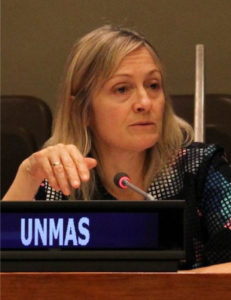
“The Role of Mine Action in Peacebuilding”
Abigail Hartley
UNMAS, Chief of Policy, Advocacy, Public Information and Resource Mobilisation
Abigail Hartley was appointed Chief of the Policy, Advocacy and Public Information section of UNMAS in May 2014. Under Ms. Hartley’s supervision, the section focuses on leadership of the Inter-Agency Coordination Group on Mine Action (comprising 12 United Nations entities and 2 observers), development of mine action policy, monitoring of the United Nations Mine Action Strategy 2019 – 2023, advocacy in support of mine-related international legal instruments, as well as UNMAS communication and outreach. In 2019 Ms. Hartley took on management of resource mobilization UNMAS and was appointed Chair of the International Mine Action Standards Review Board.
Ms. Hartley has over 15 years of progressively responsible experience in the mine action sector at both headquarters and field level. She spent almost 6 years working in Afghanistan, a country significantly impacted by landmines and other explosive remnants of war and the oldest and largest mine action programme in the world. Ms. Hartley joined the UNMAS programme as a Senior Programme Officer and thereafter held posts of Chief of Staff and Programme Manager overseeing policy, political, legal, humanitarian, social and economic aspects of the programme. Prior to this, Ms. Hartley worked for many years with the mine clearance organization Mines Advisory Group (MAG) all over the world but primarily in South Sudan, Sri Lanka and Sudan. For all of 2019 Ms. Hartley served as the Deputy Head of Office for OCHA in Somalia, returning to UNMAS in early 2020.
Ms. Hartley is a graduate of the University of Bradford and holds a Master’s degree in International Politics and Security Studies.
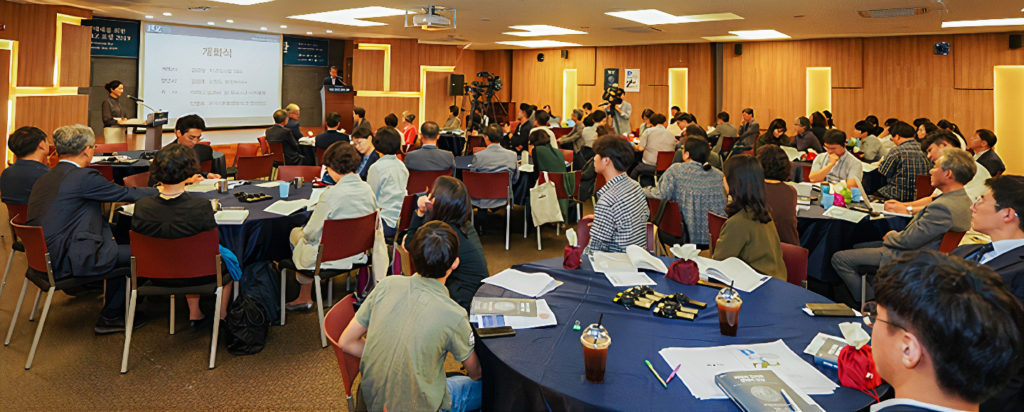
Register To Get The Online Conference Link
Are you interested in attending the conference online? Please register to get the online access link for the conference.